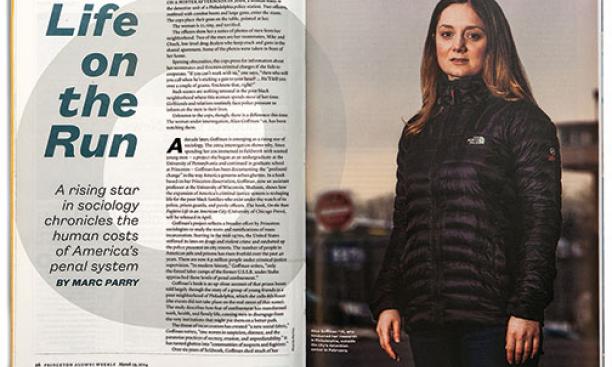

To sympathize with criminals who fear being caught and fault “intensified policing” for destabilizing drug traffic from when there was “a corporate-like hierarchy protect[ing] their workers from the police and from people who might harm them” is a benighted view of the drug problem and its victims (“Life on the Run,” March 19). Our society has known moments of praiseworthy civic disobedience, but never in the name of drug dealing, murder, and robbery.
Having begun being a journalist on a police beat in Philadelphia, I saw the deplorable life of ghetto dwellers and also the underpaid, dangerous, and revolting lot of policemen, taunted continually and sometimes attacked, trying to do something about lawlessness for the sake of upright inhabitants more victimized than the criminals Alice Goffman *10 calls “victims.” Individual examples of police brutality sometimes make the press, but the days when a cop can tread fearlessly on civil rights are behind us.
Our judicial system is imperfect and court-appointed lawyers don’t always serve the innocent well, but our judges, jurors, and prosecutors — of whom many are black — don’t spend their time violating due process to railroad blacks into prison. I find the gulag comparison particularly egregious, since my cousin never returned from that archipelago where a huge portion of a population was martyred by a criminal government.
We need cooperation between people of all colors and faiths — people of good faith and sincere empathy — to have pragmatic and moral answers to changing an underclass maimed by an inheritance of the sins of slavery and Jim Crow. We don’t need the pleasure of perverse self-righteousness that comes with ill-placed sympathy toward benevolent laxity regarding crime.
